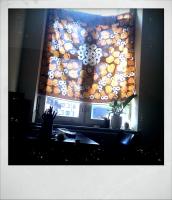Аннотация
Integrating digital content from libraries, archives and museums represents a persistent challenge. While the history of standards development is rife with examples of cross-community experimentation, in the end, libraries, archives and museums have developed parallel descriptive strategies for cataloguing the materials in their custody. Applying in particular data content standards by material type, and not by community affiliation, could lead to greater data interoperability within the cultural heritage community.
In making this argument, the article demystifies metadata by defining and categorizing types of standards, provides a brief historical overview of the rise of descriptive standards in museums, libraries and archives, and considers the current tensions and ambitions in making descriptive practice more economic 1.
Линки и ресурсы
тэги
сообщество
@oeoe- тэги данного пользователя выделены

